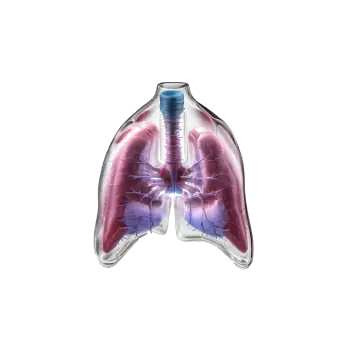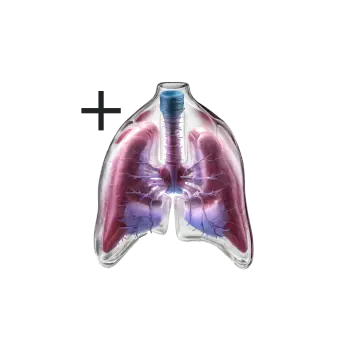Quick version
Low TSH can indicate hyperthyroidism, which means an overactive thyroid gland and symptoms such as heart palpitations, weight loss, and anxiety. It can also be caused by central hypothyroidism, pregnancy, or an overdose of thyroid medication.
Is low TSH dangerous?Low TSH is usually not dangerous in itself but can pose long-term risks such as heart problems and osteoporosis if caused by a thyroid disorder.
What to do?Contact a doctor for evaluation and additional tests, such as T3 and T4. Follow up regularly if a thyroid disorder is confirmed. A thyroid test can provide insights into your thyroid function.
What does a low TSH mean?
A low TSH indicates that the thyroid gland is producing too much of other thyroid hormones like T3 and T4. This condition is called hyperthyroidism, which leads to an overactive metabolism and may cause symptoms such as:
- Heart palpitations
- Weight loss
- Increased sweating
- Restlessness and anxiety
- Sleep problems
Sometimes, a low TSH can also result from a disturbance in the pituitary gland or hypothalamus, reducing the body's ability to stimulate the thyroid gland. This condition is called central hypothyroidism, a rare but serious cause that requires specialist evaluation.
A low TSH can also occur naturally during pregnancy, especially in the first trimester, due to hormonal changes. This is usually not dangerous but should be monitored.
Another reason for a low TSH level is in individuals being treated for hypothyroidism who take too much thyroid medication. In such cases, the dosage may need to be adjusted.
Is a low TSH dangerous?
A low TSH is not inherently dangerous, but if linked to hyperthyroidism or another condition, it can have long-term consequences, such as heart problems, osteoporosis, chronic fatigue, and muscle weakness. This makes it important to monitor and check your values regularly.
What should I do if my TSH is low?
If you have a low TSH, you should contact a doctor for further investigation to determine the cause and whether treatment is needed. A doctor can assess whether additional tests, such as measurements of T3 (free triiodothyronine) and T4 (free thyroxine), are necessary to evaluate your thyroid function more accurately. If a thyroid disorder is confirmed, it should be followed up with regular monitoring to assess thyroid function and treatment effectiveness.
How to monitor your thyroid levels
Keep track of your TSH, T3, and T4 levels with our thyroid test, which provides insights into your thyroid function.

























